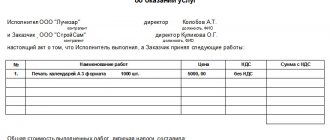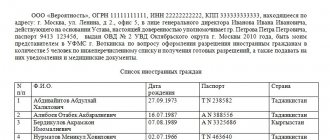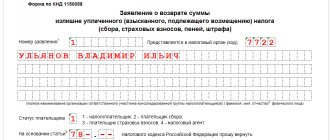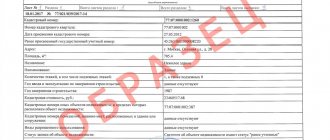How to draw up an application for the inclusion of documents and other evidence in a civil case? Who has the right to draw up and submit such a petition to the court? Here you can make statements. Fill it out with the necessary data and your application will be ready.
During the trial, participants in civil proceedings must prove their arguments (Article 56 of the Code of Civil Procedure of the Russian Federation). The parties mainly use written documents as evidence. Testimony of witnesses (about calling witnesses) and forensic examination are also suitable. But mostly - documents.
The plaintiff may submit documents and other evidence along with the statement of claim, and the defendant, along with a response to the claim. In this case, there is no need to prepare a separate application. The documents are listed in the list of appendices to the main document. If written documents and other evidence are presented separately, then it is better to fill out a separate application according to the provided sample.
If it is impossible to provide evidence, the applicant does not have it and he cannot obtain it from the person who possesses it, the following is drawn up:
Request for evidence
How to make a petition
The current legislation does not establish strict requirements for its design, but nevertheless a certain structure has developed as a result of legal practice:
- "A cap". Here you should indicate the name of the court and its address, as well as the full name and contact information of the plaintiff and defendant. If one of the parties is an organization, then you need to indicate its name and legal address.
- The title and number of the case in question.
- List of attached documents. At the same time, it is necessary to add explanations as to why this information is important.
- Please provide evidence regarding the dispute under consideration.
- The date the document was drawn up and the signature of the applicant.
Sample request for inclusion in the case materials
Why do you need a petition to include additional documents in the case?
In what cases and how is a request for documents submitted?
Such petitions are the implementation of the constitutional right of everyone to protection in the courts. This right is not special, therefore any participants in the case can submit various petitions.
For representatives, it is not necessary to specifically state it in powers of attorney. Initially, evidence is presented along with the claim (application).
Subsequently, the other party, in response to the plaintiff’s demands, declares its position and provides its own evidence to support it.
How to submit a petition
There are three options for submitting statements that confirm the version of one of the parties.
- Before the trial. In this case, you need to make two copies: one will remain with you, indicating the date, stamp and signature of the office employee who accepted the application.
- During the trial. Before it begins, the judge gives the parties the opportunity to file a motion.
- By registered mail with notification.
Both originals and certified copies can be attached to the case. In most cases, copies are sufficient - moreover, this minimizes the risk of losing important papers. However, in some cases only originals are required:
- if only the original documents confirm information on the claim under consideration;
- if the original and the copy are not identical, or several copies differ from each other;
- if it is impossible to consider the claim without the original (for example, for a handwriting examination, the original of the contract is required).
How to clarify your position during a case in court
The company wants to file an appeal or cassation with additional justification for its position, which will help overturn the court decision. It is not clear how to add additions, because the APC does not establish special rules for this. In such a situation, it is necessary to rely on the opinion of the courts. The article contains three rules from practice; adhere to them so that the court accepts additional arguments.
Requirements for video evidence and other materials
The court recognizes video, photos and audio materials as admissible if:
- the applicant will indicate when, under what circumstances and by what technical means he received the recording;
- videos and photos do not violate the law that regulates the collection, storage, use and dissemination of information about the private life of a person (part 1 of article 24 of the Constitution of the Russian Federation, paragraph 7 of article 3 of the Federal Law of July 27, 2006 No. 149-FZ “On Information” , information technology and information protection");
- You can accurately identify a person captured in a video or photo.
Sample request for inclusion of documents
The procedure for familiarizing with the case materials of participants in civil proceedings
Lawyer Antonov A.P.
Article 35 of the Code of Civil Procedure of the Russian Federation provides for the right of persons participating in the case to familiarize themselves with the case materials, make extracts from them, and make copies.
The procedure for familiarizing yourself with the materials of a civil case in courts of general jurisdiction is provided for by three instructions:
— Instructions for judicial records management in the district court, approved. By Order of the Judicial Department at the Supreme Court of the Russian Federation dated April 29, 2003 N 36 (hereinafter referred to as Instruction dated April 29, 2003 N 36);
— Instructions for judicial records management in the supreme courts of republics, regional and regional courts, courts of federal cities, courts of the autonomous region and autonomous districts, approved. Order of the Judicial Department at the Supreme Court of the Russian Federation dated December 15, 2004 N 161 (hereinafter referred to as Instruction dated December 15, 2004 N 161);
— Instructions for judicial records management in courts of appeal of general jurisdiction, approved. By Order of the Judicial Department at the Supreme Court of the Russian Federation dated October 1, 2019 N 225 (hereinafter referred to as Instruction dated October 1, 2019 N 225).
It is necessary to take into account that the procedure and deadlines for issuing court cases in a court of general jurisdiction for review are established by the chairman of the court (clause 14.1 of the Instruction dated April 29, 2003 N 36; clause 16.1 of the Instruction dated December 15, 2004 N 161, clause 13.1 Instructions dated October 1, 2019 N 225).
The familiarization schedule is brought to the attention of court visitors by posting it on information stands and on the official websites of the courts on the Internet.
Materials of a civil case may be provided for review to persons participating in the case (their representatives) and other participants in the process on the basis of a written application and upon presentation of relevant documents.
Thus, according to clause 14.1 of Instruction No. 36 dated April 29, 2003, in order to become familiar with the case materials, persons present:
1) identification document (passport of a citizen of the Russian Federation, service ID, lawyer’s ID, etc.);
2) a document confirming the authority of the representative (power of attorney).
According to clause 14.2 of Instruction No. 36 dated April 29, 2003, persons are familiarized with the materials of the court case (other materials) on the basis of their written application (Form No. 62), on which the judge in whose proceedings the court case is (or was), and in his absence - the chairman of the court (or his deputy) or another person authorized by him makes an appropriate note about the order to the court staff member to familiarize himself with the case materials. This application is filed in the file, and if a power of attorney is presented, a copy of it is also attached to the file.
It is necessary to keep in mind the provisions of Part 2 of Art. 49 of the Code of Civil Procedure of the Russian Federation, which states that lawyers and other persons providing legal assistance who have a higher legal education or an academic degree in a legal specialty can act as representatives in court, with the exception of cases considered by magistrates and district courts.
Accordingly, if there are conditions for this, the representative must attach a duly certified copy of the diploma to the application for familiarization with the case materials and present its original to the court employee before issuing the case for familiarization.
Failure to provide these documents may result in refusal.
At the same time, as explained by the Appeal Ruling of the Appeal Board of the Supreme Court of the Russian Federation dated November 25, 2014 N APL14-575, the form for drawing up an application for familiarization with a court case is not recognized by the instructions as mandatory for the applicant, but is exemplary for use in the work of the court apparatus.
Accordingly, a person applying to familiarize himself with the case materials has the right to use any form containing the necessary notes and details.
In paragraph 14.2 of the Instruction dated April 29, 2003 N 36, it is explained that familiarization with cases (other materials) must take place in a court premises specially equipped for this purpose in the presence of an authorized employee of the court apparatus in conditions that exclude the seizure, damage, or destruction of materials files, as well as making corrections and additions to them, transferring them to another person.
A note about familiarization with the case is made on the information sheet.
After familiarizing yourself with the court case (other materials), an authorized employee of the court apparatus, in the presence of the person who has become familiar with the court case (other materials), checks the status of the case and the presence of all documents in the case, makes a note in the application (Form No. 62) to the effect that that the case has been returned. If, after the return of the case, an authorized employee of the court staff reveals that the case materials have been seized, damaged, as well as corrections and additions have been made to them, the chairman of the court or his deputy is immediately informed about this.
With the development of information technology, some courts of general jurisdiction have provided the opportunity to familiarize themselves with evidence and other documents attached to the case materials in electronic form.
By virtue of clause 14.2.1 of the Instruction dated 04.29.2003 N 36, familiarization with evidence and other documents attached to the case materials in electronic form (audio and video recordings, etc.) is carried out in accordance with the procedure established by clause 14.2 and 7.12.1 Instructions (the procedure for familiarizing yourself with the audio recording of the court session attached to the minutes of the court session).
According to clause 14.6 of Instruction No. 36 dated April 29, 2003, the right to make copies of documents from the case materials at one’s own expense, including using technical means, is granted to the parties and other persons participating in a civil case, as well as their representatives (Part 1 Article 35 of the Code of Civil Procedure of the Russian Federation).
These persons make copies upon written application in the manner established by the chairman of the court or the judge presiding over the case. This written statement with the authorizing resolution of the chairman of the court or the judge presiding over the case is filed in the court file.
Copies made by the listed persons at their own expense from the materials of the court case, including with the help of technical means, are not certified by the court.
It must be taken into account that court employees are not responsible for the identity of copies (photocopies) of documents produced by persons participating in the case, and therefore do not certify or certify such documents for their compliance.
Similar provisions are provided for in Instructions dated December 15, 2004 No. 161 and Instructions dated October 1, 2019 No. 225.
The appendices to the orders of the Judicial Department that approved these instructions provide sample forms of applications for familiarization with the case materials.
In addition, application forms for familiarization with the case materials are posted on the official websites of the courts on the Internet.
If a participant in the case plans to make copies of the case materials using their own technical means (including photography), this must be indicated in the application.
If the application for familiarization is signed by a representative, then a certified copy of the power of attorney is attached to it.
A participant in the case (his representative) fills out an application and sends it to the court in the following ways:
- in person through the court office;
- via postal service;
- by fax, email (if such a communication channel is provided by the court for filing procedural documents);
- by filling out an application form on the official website of the court on the Internet (if such a communication channel is provided by the court for filing procedural documents).
After receiving a message about registering an application to familiarize yourself with the case materials, you must wait for a response from an authorized court official setting a date and time of arrival to familiarize yourself with the case materials in accordance with clause 14.2 of the Instruction dated April 29, 2003 N 36.
To do this, in order to simplify communication with a representative or participant in the case, it is necessary to indicate available telephone numbers and other contacts in the application.
Since the application for familiarization with the case materials does not require the appointment of a court hearing, its consideration is carried out within a reasonable time (usually 5 - 10 working days).
The procedure for issuing court cases located in the court archives, as well as making copies from them, are regulated by the Instruction on the procedure for organizing the acquisition, storage, recording and use of documents (electronic documents) in the archives of federal courts of general jurisdiction, approved. By Order of the Judicial Department at the Supreme Court of the Russian Federation dated March 19, 2019 N 56 (hereinafter referred to as Instruction dated March 19, 2019 N 56).
By virtue of clause 11.5 of Instruction No. 56 dated March 19, 2019, the release of court cases (other materials) in the archives for review by persons participating in the case, their representatives, as well as other persons is carried out in the manner established by the chairman of the court, on the basis of their written application and upon presentation of documents in accordance with Appendices No. 1 to Instructions No. 36, 161.
The indicated forms are exemplary, however, to simplify the familiarization procedure, it is recommended to use a form specially provided for these purposes.
Familiarization with the court case must be carried out in a court premises specially equipped for this purpose in the presence of a court archive employee (another authorized employee of the court apparatus) under conditions that exclude the seizure, damage, destruction of case materials, as well as the introduction of corrections and additions to them, and their transfer to another person.
A note about familiarization with the case is made in the document use sheet (Appendix No. 27 to Instructions dated March 19, 2019 No. 56). If the person who has familiarized himself with the case refuses to sign, a record of familiarization with the case is made by an employee of the court archive (clause 11.6 of the Instructions dated March 19, 2019 N 56).
Sincerely, lawyer Anatoly Antonov, managing partner of the law firm Antonov and Partners.
Still have questions for your lawyer?
Ask them right now here, or call us by phone in Moscow +7 (499) 288-34-32 or in Samara +7 (846) 212-99-71 (24 hours a day), or come to our office for a consultation (by pre-registration)!










